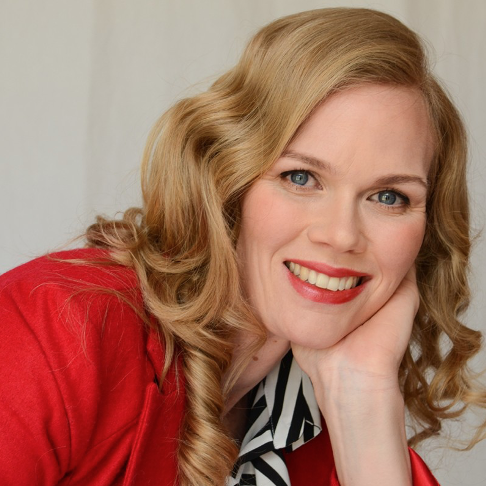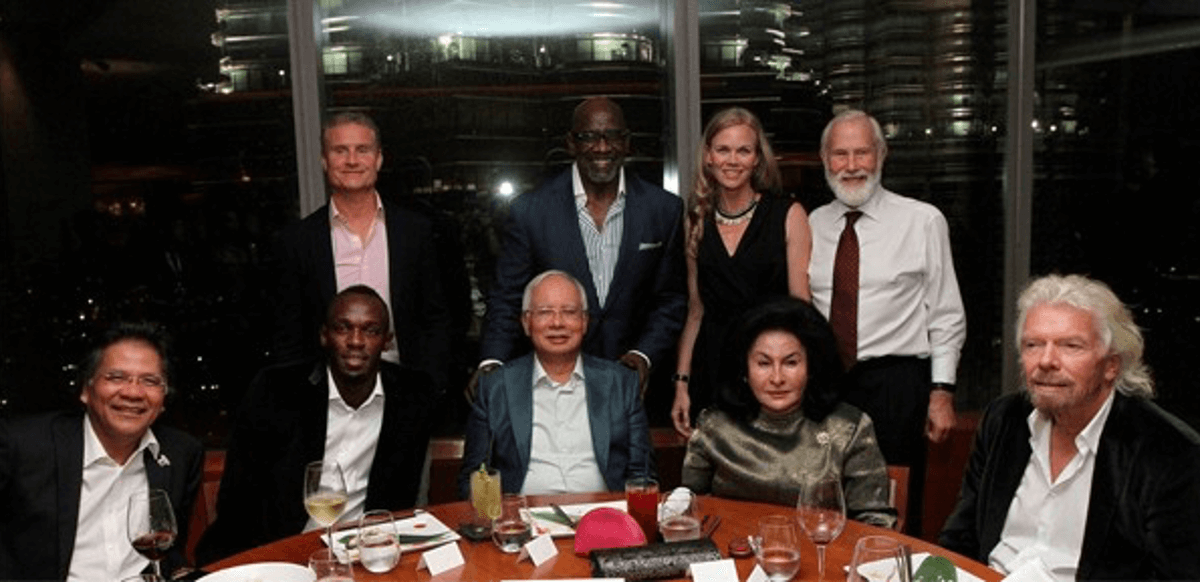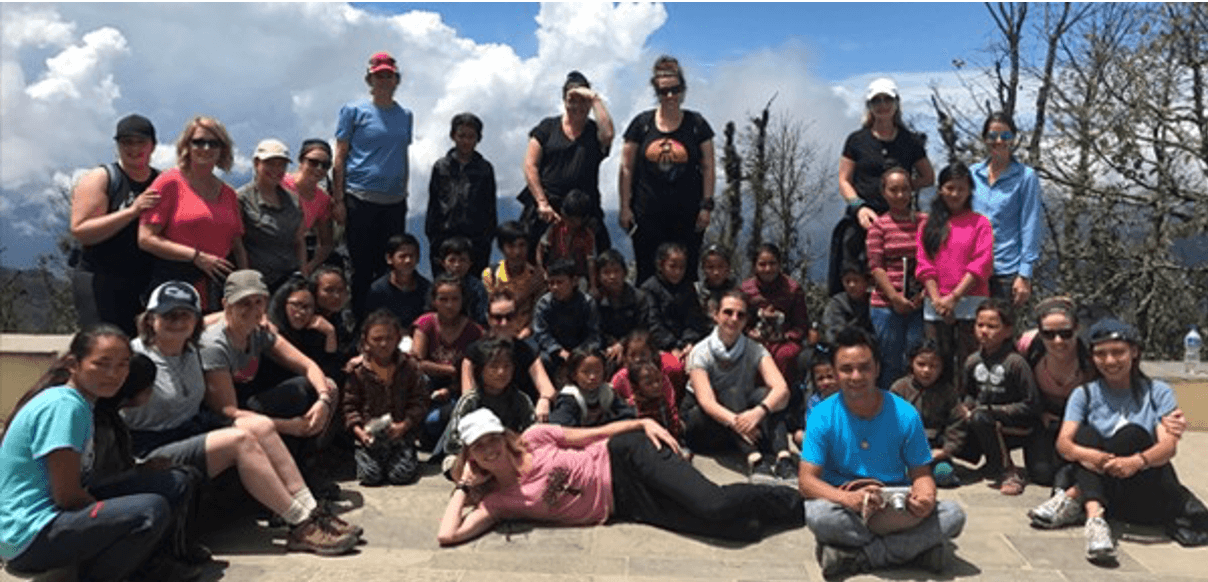31 January 2018
Katrina Webb
Bachelor of Physiotherapy
Director, Silver 2 Gold High Performance Solutions

When Katrina Webb graduated from UniSA she couldn’t have imagined the path her career would take. From winning gold at the Paralympic Games to running her own leadership business and finding a second home in Nepal, Katrina’s journey has become an inspiration to thousands.
As part of an athletic family, sport was always going to play an important role in Katrina’s life. But, she was aware that there was something different about her – a mild weakness on her right side that she worked hard to overcome to gain a netball scholarship to the Australian Institute of Sport.
This opportunity was a dream come true, but it was also where she discovered that the weakness was caused by a mild form
of cerebral palsy. Unsure of what would happen next, Katrina was quickly sought after for the 1996 Atlanta Paralympic Games where she won two gold and a silver medal, and went on to win four more medals at the 2000 Sydney and 2004 Athens Paralympic Games.
During this time Katrina was also completing a Bachelor of Physiotherapy and working with her mentor Marc Colquhoun to set herself up as a business and make the most of her athletics career.
“Shortly after I finished competing I got married and we have since had three boys, so this made coming out of athleticism an easier shift than other athletes’ experience,” said Katrina.
“My boys helped me switch paths again and taught me how to become selfless.”
A recent inductee to the SA Sport Hall of Fame, Katrina now uses her story to inspire others to make positive change in their lives.
“I have discovered that you don’t need a disability to feel that there is something different about you, like you’re not sure where you fit. You end up trying so hard to be something that you’re not – and that’s just hard work.

“Teaching people to be their true self – their authentic self, is the most important part of my work now. It is powerful for me because I’ve lived through it and when I accepted myself and became the Katrina Webb I wanted to be and loved every bit of, all of these doors opened.”
Katrina’s business has now grown to include her Silver 2 Gold leadership training workshops and an annual conference, the ‘newday summit’ which brings local and international perspectives together to inspire leadership for the greater good. She also leads the Adelaide Crows Women FIT for Leadership program, works as a public speaker and provides wellbeing and resilience training at SAHMRI.
In her work, Katrina uses the principles she learnt from working with a sports psychologist to get back to a gold winning level of performance for the 2004 Paralympic Games.
“As a professional athlete, winning gold in Atlanta and then losing it in Sydney was one of my hardest life lessons.
“All the work I poured into winning gold again at the Athens Games, has become the heart of what I do in leadership – helping people turn their own silver moments into gold.
“It is fascinating to me that generally people may only see a psychologist when they’re burnt out, suffered a trauma, or struggling with a mental health problem, because as an athlete we use psychology to get the very best out of ourselves.
“While psychology is focused on identifying, treating, and preventing mental illness, it is also about finding your best self and I think this is often overlooked.
“I try to pass these lessons on and I engage psychologists in my programs to give people the tools they need to be resilient and authentic, to live with purpose and in a way they want to be remembered, and to put their values into action.”
Over the past 10 years, Katrina has also had some unique opportunities to further grow her leadership training and business on a global scale.

“There have been these amazing moments in my career. I was the first torchbearer to enter the stadium at the Sydney Paralympic Games opening ceremony. In 2006 the International Paralympic Committee asked me to speak at the UN International Year of Sport and Physical Education in New York alongside Roger Federer and they have since asked me to be their ambassador on several occasions.
“This year I had the chance to speak at the Global Transformation Forum alongside Usain Bolt and Sir Richard Branson. And another opportunity opened up when I was chosen to be one of 100 leaders to join the inaugural CSC Leaders initiative in London and Mumbai.
“Through CSC I met Dr Tshering Lama, who was Director of Child Reach Nepal at the time. He is truly one of the most inspiring and generous people I have ever met and takes every opportunity to improve the lives of people in Nepal.
“Together we do a lot of work running programs in Nepal to help people, particularly children at risk of trafficking. Trafficking is a huge global problem and once your eyes are opened to it, like mine have been in Nepal, you just have to do something about it
“We do a lot of work over there to try to intervene through education. Nelson Mandela said ‘education is the best weapon we can all have in life’ and research shows it is key to keeping kids safe.

“I also sit on the Crows Children’s Foundation Board and for part of this work I have been leading treks in Nepal to Everest Base Camp. The last two treks have helped raised $90,000 for children in Australia and Nepal.
“So, now that my work is leading to more and more international requests, I’ve realised that I’m doing something right.
“I would like to see the newday Summit reach an international audience and have that wonderful ripple effect that gets people influencing more and more people to use their leadership to help others and forge human connections.
“When you look at the mental health problems we currently face, it’s a really worrying place. We have disconnected from people, which is a real vulnerability for developing a mental illness and we have also disconnected from what really matters to us. If I can help people to connect with and find their true self – then I know I’m doing my best work”.
When asked what one piece of advice Katrina could offer from her leadership work she emphasised the importance of understanding what values and goals are most important.
“One of my steepest learning curves was saying yes to everything because I love to help people. I was doing quantity not quality and any strength when taken to the extreme becomes a weakness.
“It is important to work out what is important to you, where you want to spend your time, to learn how to say no to those things that are not aligned with your priorities and values.
“But also you need to learn to say yes to those things that are, those things that probably make you feel a bit uncomfortable and nervous, because deep down you know they are the things that have the most riding on them.”
For more Silver 2 Gold tips – visit katrinawebb.com.au.




